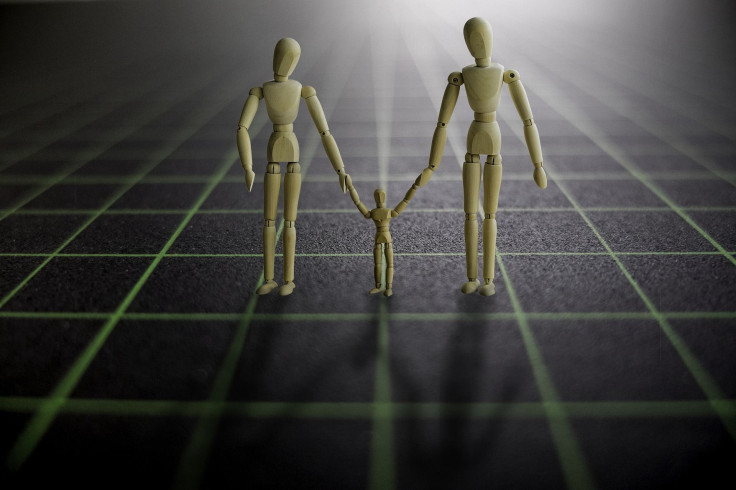Good Cop, Bad Cop Parenting Linked To Obesity, Poor Physical Health

Figuring out the right combination of discipline and compassion can be tough for parents. Being too lenient could lead to a child with no concept of responsibility or authority; but being too harsh can lead to resentment and rebellion. A new study by researchers from Iowa State University and the University of California-Davis shows that harsh parenting may also increase kids’ risk for obesity and poor physical health as they enter adolescence.
The results raise more questions than they answer, according to Thomas Schofield, lead author and an assistant professor of human development and family studies at Iowa State. Research has shown that the link between tough parenting and poor physical health — inflammation, harmful surges of hormones, low cardiovascular activity — can be buffered by a warm, nurturing coparent. However, harsh parenting’s negative effect on Body Mass Index, a measure of healthy body weight, got worse as warmth from the coparent increased.
“Harshness leads to problems with physical health, and no matter how hard a spouse tries they may not be able to erase those effects,” Schofield said in a statement. “Instead of saying, ‘I’m the law and my wife is the gospel’ or something like that, better to acknowledge that in terms of harshness, your spouse is not going to be a buffer for the child, so behave responsibly.”
The study involved 451 two-parent families, and had researchers observing parent-child interactions to analyze changes in the child’s health from early adolescence to adulthood. The scientists defined harsh parenting as coercion, rejection, physical aggression, and self-centeredness. No parent in the study was ever observed actually hitting their child, but Schofield said the team observed other signs of physical aggression, including pinching and pushing.
These tough parenting techniques can create a chronically stressful environment for kids, said Schofield. After being exposed to this atmosphere for nearly two decades, the child’s developing brain can suffer the consequences. Most parents do want what’s best for their child, but oftentimes they don’t recognize their own behavior as overly harsh. This can be a product of how parents themselves were raised, Schofield said.
“We’re fighting against that emotional connection to our own caregiver, who parented us that way,” he explained. “If we accept that the behavior is damaging, we have to accept that our parent who loved us did something that may have been bad for us. It’s not a complicated idea, but there’s just so much emotion in the way.”
Schofield said more research needs to be conducted before anyone will fully understand what’s happening with the results. But for now, he added, “The best thing we can do is encourage parents not to be harsh.”
Source: Schofield T, Conger R, Gonzales J, Merrick M. Harsh Parenting, Physical Health and the Protective Role of Positive Parent-Adolescent Relationships. Social Science & Medicine. 2016.



























